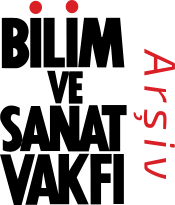Yerel tarih ve tarih eğitimine katkısı
Künye
Avcı Akçalı, Aslı. Yerel tarih ve tarih eğitimine katkısı. danışman Erdal Aslan. İzmir: Dokuz Eylül Üniversitesi Eğitim Bilimleri Enstitüsü, 2007. 146 s.
Özet
İnsandan uzak, tepeden yazılan tarihçiliğe yerelliğin, yani tarihte yıllar boyu yer verilmeye değer görülmeyen mekan ve insan gibi ögelerin dahil edilmesi çok uzak bir geçmişe dayanmamaktadır. Ancak tarihçiliğe sağlayacağı katkılar anlaşılmaya başlanmış olacak ki dünyanın birçok ülkesinde yerel tarih tarihçileri cezbetmiş durumdadır. Yerel tarihin getirileri yalnızca tarihçiliğe sağladıklarıyla sınırlı değildir. Tarih eğitiminin Türkiye gibi ülkelerdeki merkeze fazlaca bağımlı, ders kitabı ve öğretmen odaklı ve insan unsurundan uzak görüntüsünü yırtacak önemli getirileri bulunmaktadır. Tarih derslerinde öğrencilere verilen bilgiler yine öğrenciler tarafından kuru ve tatsız en önemlisi de anlamsız olarak görülmektedir. Dolayısıyla da anlamsız olarak algıladıkları bilgileri niçin öğrendiklerini bilmeden ezberlemeye yöneltilmektedirler. Oysa doğru biçimde kazandırılan tarih bilgisinin onlara sağlayacağı tarihsel bilinç ve bakış açısı toplumun bireyleri olmaları açısından da farklı kazanımları bünyesinde barındırır. Topluma çağdaş bakış açısına sahip, çoğulcu ve empatik becerileri gelişmiş, farklılıkları hoşgörüyle karşılayan ve barışçı bireyler olarak katılmalarına katkı sağlar. Yerel tarihin tarih eğitimine yani dolaylı olarak bu kazanımlara sağlayacağı katkı azımsanamayacak boyutlardadır. Bu çalışma yerel tarihi tanımlamak, tarihsel süreçteki serüvenini ve tarih eğitimine sağladığı katkıları ortaya koymak amacıyla gerçekleştirilmiştir. Araştırmada öncelikle var olan koşulları gözler önüne sermek amacıyla tarih eğitiminin amaçları, Türkiye'de bu amaçlara ulaşma konusunda yasanan sorunlar ve bu sorunların ortadan kaldırılması amacıyla girişilen iyileştirme çabalarına yer verilmiştir. Ardından yerel tarihin ne olduğu, ortaya çıkısı ve gelişim süreci, teması, yerel tarihin en önemli yöntemlerinden biri olan sözlü tarih, yerel tarihin kaynakları, çeşitli açılardan ve de eğitim yönünden sağladıklarıyla ilgili bilgiler, derse ne şekilde dahil edileceğini gösteren örneklerle yerel tarihe yönelik bazı eleştirilere yer verilmiştir. Son olarak ise derse yerelliğin dahil edilmesi durumunda bunun öğrenciler tarafından nasıl karşılandığı ve bakış açılarında ne gibi degişiklikler yarattığını ortaya koyan bir uygulama bölümü yer almaktadır. Bu bölümde İzmir evreninde Amerikan Koleji lise I. sınıf öğrencileri örneklem olarak seçilmiştir. Öğrencilerin 2006-2007 eğitim öğretim yılı güz döneminde tarih dersinde gerçekleştirdikleri iki aktivite üzerinden görüşleri alınmıştır. Öğrenciler dönem içinde bir aile tarihi projesi hazırlamışlar ve Allianoi-Bergama gezisine katılmışlardır. Aile tarihi projesinde öğrenciler yerel tarihin önemli yöntemlerinden olan sözlü tarihi kullanarak aile büyükleriyle görüşmeler yapmışlar ve onların yaşantılarını dönemin tarihsel olaylarıyla bağlantılı biçimde ortaya koymuşlardır. Allianoi-Bergama gezisinde ise tarih derslerinde isledikleri ilk çağ uygarlıklarının beşiği durumundaki tarihsel mekanları görme şansı elde etmişlerdir. Bu aktiviteler sonrasında ise öğrencilerin tarih derslerine yönelik düşüncelerinde meydana gelen değişimler yöneltilen sorulara alınan yanıtların belirli kategorilere ayrılması yoluyla tablolaştırılmış ve bulgular yorumlanmıştır. The placement of locality into historiography which was written away from people, in other words the elements like people and place seemed unimportant to be taken into account in history for years, was not founded on long years ago. But the contributions that it will provide for historiography started to be understood that, local history attracted the historians in many countries of the world. The benefits of local history are not just limited to the benefits it contributed to the historiography. There are important benefits of history teaching in the countries like Turkey to get rid of the image of history teaching which is dependent very much on the center, focused on textbook and teacher and far from personal component. The knowledge given to the students in history courses are perceived by these students as dry, insipid and also meaningless. So they are directed to memorize the know ledge that they perceive as meaningless without knowing why they learn. However, historical knowledge that is taught them in a right way provides them historical consciousness and perspective and this holds different advantages in its structure for the students in terms of being members of the society. This ensures the contributions that lead them to participate in society as peoples who have modern viewpoint, developed emphatic skills, who are pluralist, peaceable and tolerant to the differences. The contributions of local history to history teaching namely to these winnings indirectly can not be regarded as little. This study aimed to define local history, introduce its adventure in historical process and its contributions to history teaching. In this study fistly the aims of history teaching, the problems that are faced with in Turkey about reaching these aims and efforts started out to remove these problems are given place to show current conditions. Then, there is the definition of local history, foundation of it and the process of development, theme of it, oral history as one of the most important methods of local history, sources of local history, contributions of it from the educational perspective and some other perspectives, examples to show how to integrate local history in history courses and some critics about local history. Lastly there is an application section that brings up how the students respond to the integration of local history in courses and what kind of differences local history create in their viewpoints against the courses. In this section, the first grade students of the high school in American College Institute were chosen as sample in İzmir. The opinions of the students were taken up over the two activities that were done in history courses in 2006-2007 fall term. The students prepared a family history project and participated in a trip to Pergamon-Allianoi. In family history project the students made interviews with the old members of their families by using oral history as one of the most important methods of local history and brought up their lives in connection with the historical events of the era. And in the trip to Pergamon-Allianoi they had the chance to see the historical places that were the center of ancient civilizations they learn in the history courses. After these activities the differences occured in students opinions against history courses were categorized through their responses to the questions asked, results were shown in tables and then they were interpreted.
Koleksiyon
- Tez [172]
